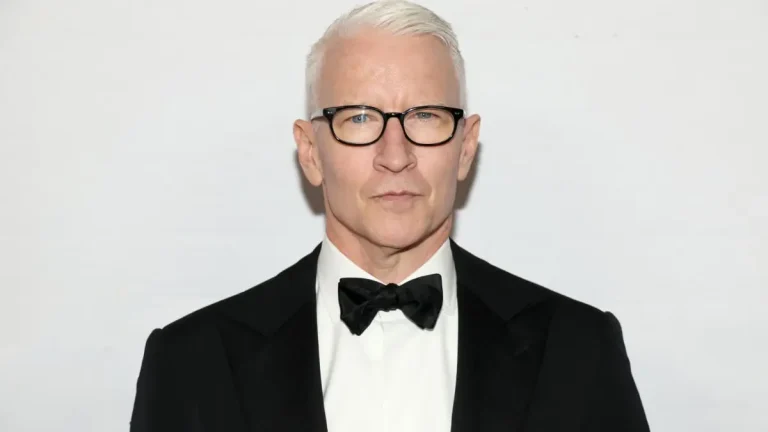Kennedy Funding Lawsuit: Regulatory Battle Over $11B Health Cuts Kennedy Funding Lawsuit: See Regulatory Battle! Picture this: You’re a clinic director in rural Arizona, and overnight you learn that every dollar backing your immunization drive, addiction counseling program, and emergency response plan is gone—terminated not by a vote in Congress but with a single executive …
Ennedy Funding Lawsuit: See Regulatory Battle!


Kennedy Funding Lawsuit: See Regulatory Battle!
Picture this: You’re a clinic director in rural Arizona, and overnight you learn that every dollar backing your immunization drive, addiction counseling program, and emergency response plan is gone—terminated not by a vote in Congress but with a single executive decision. Now multiply that uncertainty across nearly two dozen states and billions of dollars in public health funds. That’s the crisis fueling the Kennedy Funding Lawsuit.
This isn’t some arcane budget dispute buried on page 847 of federal statutes. Since March 2025, an economic tidal wave has surged through America’s public health infrastructure after the Department of Health and Human Services (HHS), led by Secretary Robert F. Kennedy Jr., unilaterally terminated roughly $11 billion in previously approved COVID-era grants for states and cities nationwide. The upshot? States argue their vaccination clinics risk collapse, mental health services face layoffs, substance abuse outreach could evaporate—and all without so much as a Congressional nod or full legal review.
But what does “the Kennedy Funding Lawsuit” really mean? Who stands to lose? And do these legal battles change how future pandemics are managed—or who controls federal purse strings? All of which is to say: If you rely on public health systems for anything from vaccines to opioid interventions—or simply want transparency over where your tax dollars go—this regulatory showdown demands your attention.
Defining The Kennedy Funding Lawsuit And Its Scope
Few funding controversies have triggered quite such immediate alarms among state officials as this one.
The Kennedy Funding Lawsuit encompasses several major legal actions filed against HHS over its sudden termination of pandemic-related public health grants beginning March 24, 2025. At issue is whether HHS had any authority to rescind nearly $11 billion earmarked through bipartisan Congressional legislation—a move dozens of attorneys general claim violates both statutory law and basic constitutional principles about who controls government spending.
- What was cut? Grants supporting immunization campaigns; mental health/substance abuse treatment; infectious disease control initiatives; and modernization projects critical for national preparedness.
- Who sued? Twenty-three states plus D.C., led by coalitions from California, Arizona, Michigan, Rhode Island and others—all warning that abrupt cuts threaten job losses in clinics large and small.
- The legal bedrock: Most cases hinge on alleged violations of the Administrative Procedure Act (APA) because terminations came with little notice or explanation—and arguably sidestepped Congress entirely.
The Regulatory Battle Unfolds: Case Studies And Legal Developments In The Kennedy Funding Dispute
Let’s dig into how quickly this funding conflict escalated into a cross-country courtroom drama—with real-world stakes measured in millions lost jobs threatened programs, not abstract policy points.
- A Federal Court Freezes Cuts:
On May 16th—the day before grant expirations took effect—a federal judge in Rhode Island issued an injunction blocking HHS from withdrawing funds anywhere in the country.
“Immediate irreparable harm,” said the ruling—an unusually stark assessment underscoring how vital these dollars are to community healthcare systems. - A Multi-State Coalition Takes Action:
Attorneys General from twenty-three states plus D.C., including leaders like Arizona’s Kris Mayes and Michigan’s Dana Nessel, moved fast to challenge what they called an “illegal power grab.” Their suits call out potential breaches not only of administrative procedure but also core separation-of-powers doctrines—the very notion that agencies can’t override Congressional appropriations.- Arizona alone faces loss of $239 million covering everything from rural doctor salaries to city infection surveillance teams.
- Michigan risks forfeiting nearly $380 million meant for vaccine drives and opioid epidemic response.
- Pain On The Ground – State-Level Impact:
A few numbers tell their own story:State Approximate Funding Lost ($M) Program Areas Affected Arizona 239 Disease control,
mental health,
rural care networksMichigan 379.3 Vaccination clinics,
opioid intervention,
infectious disease trackingMaryland 200 Immunizations,
preparedness planningHawaii 89 Mental health,
substance abuse,
immunization support - Not Every ‘Kennedy’ Is Related:
The funny thing about high-profile disputes is confusion can arise around names. Take Quimera Holding Group SAC v. Kennedy Funding Financial LLC—a separate Third Circuit financial lawsuit making headlines simultaneously due solely to “Kennedy” branding similarities.
(For clarity’s sake—no connection here between that private lending suit and these headline-grabbing public funding battles.)
The Data Underneath The Controversy: How Much Was Cut And Who Gets Hit Hardest?
By most measures—and certainly by those cited repeatedly in state complaints—the scale of affected funding is staggering:
- Total at risk nationally: $11 billion across all fifty states plus territories (source: official AG press releases & litigation dockets).
- Main programs losing support:
- Pandemic recovery clinics & vaccination efforts;
- Addiction treatment/mental health resources;
- Disease outbreak monitoring infrastructure;
- Crisis/emergency readiness staffing lines.
All told? Rural areas look especially exposed—the loss of even modest grant sums risks decimating frontline medical workforces relied upon by isolated communities farthest from large hospitals or urban safety nets.
In fact: “Thousands of doctors,
tribal nurses,
public-health managers,
and local contact tracers may see positions eliminated if courts don’t force restoration.”[Source links available via coalition filings.]
Few federal funding battles have sparked as much confusion and anxiety as the Kennedy Funding Lawsuit. Across the United States, public health workers are now asking a simple question: what happens when $11 billion in lifeline grants disappear overnight? For many states—rural or urban, blue or red—the upshot is both immediate and deeply unsettling. This isn’t some far-off bureaucratic squabble. We’re talking about money that pays for vaccine clinics, mental health services, addiction treatment, and infectious disease control—all programs whose loss would reverberate through every community. The regulatory battle over these grant terminations has forced local officials into a scramble for answers while patients and staff wonder if critical care will simply evaporate.
But how did we get here? Why did Secretary Robert F. Kennedy Jr.’s Department of Health and Human Services move to halt such large-scale federal support—and do they even have the legal right? In this installment, we’ll walk through the decisive court rulings and lawsuits shaping the outcome, unraveling not only who stands to lose but also whether executive agencies can so easily sidestep Congress’s intent. All of which is to say: buckle up as we dissect one of 2025’s most consequential regulatory showdowns.
Key Court Decisions And State Litigation Over Kennedy Funding
The funny thing about funding fights is how quickly they escalate from technical memo to courtroom drama. In the case of the Kennedy Funding Lawsuit, that escalation was swift—and very public.
On May 16, 2025—a date already etched into state agency calendars—the U.S. District Court for Rhode Island issued a preliminary injunction with sweeping impact. HHS and its secretary were barred from making good on their plan to cancel roughly $11 billion in public health grants nationwide. Instead, HHS must now provide proof of compliance with court orders before proceeding further.
This was no isolated skirmish. By April 2025, a coalition representing 23 states plus Washington D.C. had filed suit to stop HHS dead in its tracks:
- Lead plaintiffs: California, Arizona, Colorado, Minnesota, Rhode Island, Washington (with more joining weekly)
- Main argument: HHS acted without Congressional consent—violating both procedural rules under the Administrative Procedure Act (APA) and fundamental spending authority reserved for lawmakers
- Court asks: Halt all cuts until full judicial review; require transparency from HHS on future actions
If you’re looking for evidence that this lawsuit matters beyond legal theory alone, consider what’s at risk in three representative states:
| State | Funding At Risk ($M) | Main Program Areas Affected |
|---|---|---|
| Arizona | $239 | Disease control; rural/urban mental health systems |
| Michigan | $379.3 | Vaccine clinics; opioid crisis response; infectious disease units |
| Maryland | $200+ | Pandemic vaccination teams; emergency preparedness infrastructure |
| Hawaii | $89 | Mental health & immunization programs (especially remote areas) |
The problem is not just dollar figures on spreadsheets—it’s lives interrupted across hundreds of counties:
- Dwindling vaccine stocks lead to clinic closures before flu season hits peak levels.
- Mental health hotlines face layoffs days after overdose deaths spike regionally.
- Addiction recovery centers serving tribal communities see critical hiring freezes amid rising need post-pandemic.
- Disease surveillance teams find themselves unable to renew contracts essential for detecting outbreaks early enough to matter.
Court Reasoning And Legal Arguments In The Regulatory Battle Over Grant Termination Authority
The heart of this regulatory battle comes down to two questions that will resonate well beyond this year’s headlines:
- (a) Did Secretary Kennedy’s HHS overstep by halting funds Congress explicitly appropriated?
- (b) What kind of process does administrative law actually demand when it comes to massive budget reversals?
The answer offered by dozens of state attorneys general is blunt enough:
- The abrupt terminations breach both the text and spirit of statutes governing these multi-year COVID-era grants;
- No “good cause” justification was provided nor sufficient notice—a classic violation under the APA;
- This sets a dangerous precedent where any administration could circumvent legislative power by fiat whenever politically expedient;
- Cuts threaten core services like vaccination drives and epidemic surveillance still deemed vital post-pandemic;
- Lawsuits highlight particular harm in marginalized communities (tribal health clinics/rural hospitals), invoking equity obligations embedded within federal code.
| Court Date/Event | Description/Outcome |
|---|---|
| May 16, 2025 |
Preliminary injunction blocks all $11B cuts pending review; mandates oversight/compliance from HHS |
| April, 2025 < td >Coalition lawsuit filed by 23+ states/D.C.; seeks immediate relief/restoration of funds | |
The upshot? If courts ultimately side with coalition states—and uphold broad reading of Congressional spending powers—future administrations may find themselves boxed in when contemplating similar rollbacks.
But should HHS prevail on appeal or via procedural technicalities? That opens a low road scenario where executive action could regularly override stable grant cycles meant to anchor frontline care.
All of which is to say—the stakes are nothing short of historic for America’s decentralized public health system.
The abrupt termination of $11 billion in public health funding by the U.S. Department of Health and Human Services (HHS) under Secretary Robert F. Kennedy, Jr. has unleashed a legal firestorm, one that is sending shockwaves across state agencies, hospitals, and vulnerable communities nationwide. What does it mean when federally mandated grants—lifelines for immunization clinics, addiction treatment centers, and disease surveillance systems—are severed seemingly overnight? For states already grappling with resource constraints in a post-pandemic landscape, this move threatens to pull the rug from under essential programs just as public health systems are rebuilding trust and capacity.
More than 23 states and the District of Columbia have joined forces in an unprecedented legal challenge against HHS’s authority to revoke these multi-year grants without Congressional sign-off—a case that now sits at the heart of America’s debate over executive power versus legislative appropriation. This isn’t simply about dollars; it’s about safeguarding infrastructure crucial to pandemic preparedness, mental health crises, and opioid intervention efforts across both urban centers and rural outposts. In this deep dive into the Kennedy Funding Lawsuit, we’ll unravel who stands to lose most if these cuts proceed, analyze key court rulings already reshaping federal-state relations on health funding—and ask what comes next as this regulatory battle unfolds.
Key Legal Battles Over Kennedy Funding Cuts Reshape Public Health Landscape
The Kennedy Funding Lawsuit has real-world consequences cascading through state budgets, emergency rooms, addiction recovery services—and ultimately millions of Americans whose well-being depends on uninterrupted care.
- The Federal Court Roadblock: On May 16th, 2025, the District Court for Rhode Island issued a preliminary injunction stopping HHS from carrying out any part of its proposed $11 billion in public health grant terminations.
This ruling forces HHS to freeze all cuts and compels transparency by requiring proof of compliance with reinstated funds. - Multi-State Coalition Sues: A bipartisan coalition representing 23 states plus D.C. launched coordinated lawsuits within weeks.
What binds them together isn’t partisan politics but shared alarm at “devastating” threats to vaccine rollouts, opioid response teams and frontline epidemiology staffers.
This coalition’s core contention is clear: Congress created these grants through legislation tailored explicitly for COVID-19 fallout—allocations intended for years-long investment in infrastructure modernization, not subject to unilateral clawback at an agency secretary’s discretion.
| State | Approximate Funding Cut | Main Programs Impacted |
|---|---|---|
| Arizona | $239 million | Disease control & rural health staffing |
| Michigan | $379.3 million | Vaccination sites & substance abuse prevention |
| Maryland | $200 million | Pandemic readiness & immunization clinics |
| Hawaii | $89 million | Mental health outreach & public clinic support |
Courtroom Narratives Reveal Broader Stakes Of Regulatory Showdown
- The Attorney General for Arizona spotlighted $239 million at stake—a sum underwriting jobs for tribal community nurses battling Hepatitis C flare-ups while supporting mobile testing vans dispatched during heat waves or wildfire emergencies.
- In Michigan alone? A projected loss topping $379 million could shutter hundreds of vaccination pop-up clinics still vital in low-immunity neighborhoods—just as healthcare workers begin tackling surging rates of youth depression and synthetic opioid poisonings following pandemic disruptions.
- A similar refrain comes from Maryland officials facing roughly $200 million lost; their warning is starkly practical—the dissolution of regional rapid-response teams poised for future biological threats or hurricane-triggered displacement events could become reality if funding dries up now.
- Lest confusion arise among followers searching “Kennedy Funding lawsuit,” note that Quimera Holding Group SAC v. Kennedy Funding Financial LLC relates solely to commercial loan disputes—not federal grant controversies.
The problem is simple but consequential: Can an executive agency nullify billions earmarked by Congress without transparent process or oversight? All signs point toward further litigation ahead—but while courts weigh statutory interpretation and constitutional spending clauses—the fate of local clinics hangs perilously close to collapse should the injunction lift before final resolution.






